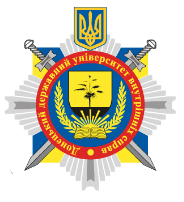GENERAL PROVISIONS OF COURT ACTIONS IN CRIMINAL PROCEEDINGS
DOI:
https://doi.org/10.32782/2523-4269-2022-81-4-2-172-177Keywords:
forensic support of court proceedings, court tactics, court actions.Abstract
The article is devoted to the study of the structure of judicial action tactics and the essential characteristics of its main elements, highlighting the technological aspect of conducting judicial actions. It is noted that judicial actions, as procedural methods of obtaining and verifying evidence, are based on relevant legal norms. The main rules of judicial proceedings include the requirements of legality, respect for human dignity, provisions on the presumption of innocence, ensuring the right to defense, competition between the parties, immediacy of the examination of evidence, publicity, openness of court proceedings and its complete recording by technical means. It is emphasized that the practical implementation of legislative structures should be facilitated by the judge’s knowledge of forensic models of judicial actions developed by the science of forensics. Important for the choice of court action tactics are: the nature of the criminal offense; the procedural status of the person against whom a legal action is being taken, his attitude to the participants in the process, to the court and the event investigated by him, interest in the results of the criminal proceedings; the degree of awareness of the object of tactical influence about the significance of the information required from him for criminal proceedings; the conditions of a person’s perception of information related to the subject of legal action; socio-psychological, moral, physical, mental and other features of the information carrier. The essence is revealed of the main elements of the tactics of judicial action, which are the subject, object, goal, specific tasks, separate constructive, organizational, communicative, actually cognitive, evidentiary actions and the methods and techniques related to them, as well as the result of the judicial action, as the result of its implementation, realized and reflected in a certain way by the subject. The stages of conducting a legal action are established and characterized, which as a whole are a system of ordered sequential actions and operations, different in their content, which includes (1) making a decision to conduct a legal action, (2) preparing for its implementation, (3) a direct act of cognition, (4) fixation and (5) evaluation of its results.
References
Мирошниченко Ю.М. Криміналістичне забезпечення судового провадження: від ідеї до теорії. Право і суспільство. 2021. № 4. С. 211–216.
Антонов А.В. Системный анализ : учебник. Москва : Высшая школа, 2004. 454 с.
Россинский С.Б. Концептуальные основы формирования результатов «невербальных» следственных и судебных действий в доказывании по уголовному делу : дис. … докт. юрид. наук : 12.00.09. Москва, 2015. 525 с.
Мирошниченко Ю.М. Завдання початкового етапу судового провадження та методи його реалізації. Київський часопис права. 2021. № 3. С. 203–207.
Сычева О.А., Якушин С.Ю. Тактические средства исследования доказательств в суде: понятие и виды. Ученые записки Казанского государственного университета. Серия: Гуманитарные науки. Том 149. Кн. 6. 2007. С. 290–302.
Кореневский Ю.В., Падва Г.П. Участие защитника в доказывании по новому уголовно-процессуальному законодательству. Москва, 2004. 159 с.
Henning, P. J. (2006). Lawyers, Truth, and Honesty in Representing Clients. Notre dame Journal of Law, Ethics & Public Policy, 20(1), 209–278. URL: http://scholarship.law.nd.edu/ndjlepp/vol20/iss1/8.
Uviller, H. R. (1975). The advocate, the truth, and judicial hackles: a reaction to judge frankel’s idea. University of Pennsylvania law review, 123, 1067–1082. URL: https://scholarship.law.upenn.edu/cgi/viewcontent.cgi?article=5311&context=penn_law_review.
Frankel, M. E. (1975). The search for truth: an umpireal view. University of Pennsylvania Law Review, 123(5), 1031–1059. URL: https://scholarship.law.upenn.edu/cgi/viewcontent.cgi?article=5309&context=penn_law_review.
Белкин Р.С. Криминалистика: проблемы сегодняшнего дня. Злободневные вопросы российской криминалистики. Москва : Норма, 2001. 240 с.
Михайловская И.Б. Настольная книга судьи по доказыванию в уголовном процессе. Москва : ТК Велби, Изд-во Проспект, 2006. 192 с.
Васильев А.Н., Яблоков Н.П. Предмет, система и теоретические основы криминалистики. Москва : Изд-во Моск. ун-та, 1984. 143 с.
Белкин Р.С. Общая теория советской криминалистики. Саратов : Изд-во Сарат. ун-та, 1986. 398 c.
Белкин Р.С. Курс криминалистики: Общая теория криминалистики : в 3 т. Т. 1. Москва : Юристъ, 1997. 408 c.
Мирошниченко Ю.М. Процесуальні чинники тактики судового розгляду кримінальних справ. Юридичний науковий електронний журнал. 2022. № 9. С. 510–513. URL: http://lsej.org.ua/9_2022/125.pdf (дата звернення: 05.11.2022).
Анохин П.К. Принципиальные вопросы общей теории функциональных систем. Принципы системной организации функций. Москва : Наука, 1973. С. 5–61.





